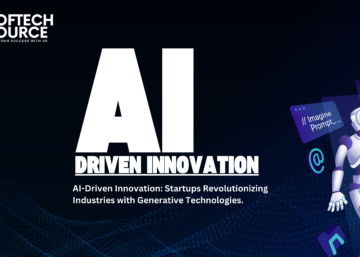Werden wir KI vollständig übernehmen?
In den letzten Jahren hat sich die künstliche Intelligenz (KI) zu einem Wendepunkt im Gesundheitswesen entwickelt und die Art und Weise, wie Ärzte Krankheiten erkennen und diagnostizieren, grundlegend verändert. Durch die Analyse medizinischer Bilder und die Interpretation von Patientendaten beschleunigt KI nicht nur den Diagnoseprozess, sondern verbessert auch dessen Genauigkeit und gibt Ärzten leistungsstarke Werkzeuge an die Hand, um Leben zu retten und die Patientenversorgung zu verbessern.
KI in der medizinischen Bildgebung: Eine neue Ära der Präzision
Eine der wichtigsten Anwendungen von KI im Gesundheitswesen ist die medizinische Bildgebung. Seit Jahren verlassen sich Ärzte und Radiologen auf Röntgenaufnahmen, MRTs, CT-Scans und Ultraschalluntersuchungen, um Krankheiten wie Tumore, Knochenbrüche und Infektionen zu erkennen. Diese Bilder können jedoch sehr komplex sein, was es schwierig macht, Anomalien zu erkennen, insbesondere in den frühen Stadien einer Krankheit.
KI-gesteuerte Systeme sind nun in der Lage, medizinische Bilder mit bemerkenswerter Genauigkeit zu analysieren. Algorithmen des maschinellen Lernens, ein Teilbereich der KI, können Muster erkennen, die vom menschlichen Auge übersehen werden könnten, und so einen zusätzlichen Einblick gewähren. In der Radiologie hat die KI beispielsweise beeindruckende Erfolge bei der Erkennung von frühen Anzeichen von Krebs, wie Lungen- oder Brustkrebs, gezeigt, was die Wahrscheinlichkeit einer wirksamen Behandlung deutlich erhöhen kann. Durch die Hervorhebung verdächtiger Bereiche geben KI-Tools den Ärzten die nötigen Informationen an die Hand, um schnellere und fundiertere Entscheidungen zu treffen.
Bessere Früherkennung und personalisierte Pflege
Die Auswirkungen der KI gehen über die Bildgebung hinaus; sie verändert auch die Art und Weise, wie Ärzte Patientendaten auswerten. Durch die Verarbeitung umfangreicher Gesundheitsinformationen, einschließlich genetischer Daten, Laborergebnisse und Krankengeschichten, kann KI helfen, Risikofaktoren für verschiedene Krankheiten zu ermitteln. Auf diese Weise können Ärzte Krankheiten wie Diabetes, Herzkrankheiten und neurologische Störungen in einem viel früheren Stadium erkennen, in dem sie oft besser beherrschbar sind.
Neben der Früherkennung trägt die KI auch wesentlich zur Erstellung personalisierter Behandlungspläne bei. Durch die Untersuchung des genetischen Profils und der Lebensstilfaktoren eines Patienten hilft die KI den Ärzten bei der Auswahl der wirksamsten Behandlungen, die auf die Bedürfnisse jedes Einzelnen zugeschnitten sind, und erhöht so die Wahrscheinlichkeit eines erfolgreichen Ausgangs.
Minimierung menschlicher Fehler und Optimierung der Arbeitsabläufe
Ein großer Vorteil der KI im Gesundheitswesen ist ihre Fähigkeit, menschliche Fehler zu minimieren. Selbst bei den erfahrensten Ärzten kann es zu Ermüdungserscheinungen, Überlastung und Schwierigkeiten beim Umgang mit großen Informationsmengen kommen. KI kann dazu beitragen, diese Herausforderungen zu verringern, indem sie komplexe Daten schnell analysiert und sicherstellt, dass keine kritischen Details übersehen werden.
Darüber hinaus vereinfacht KI administrative Aufgaben, so dass Ärzte mehr Zeit für die Patientenversorgung aufwenden können. Wenn KI die Datenanalyse und Routinediagnosen verwaltet, können Gesundheitsdienstleister die Zeit, die sie für Papierkram aufwenden, reduzieren und ihre Interaktion mit den Patienten intensivieren.
Die Zukunft der KI im Gesundheitswesen
Die KI hat bereits einen erheblichen Einfluss auf die Erkennung von Krankheiten, aber ihr Potenzial wird gerade erst erkannt. Mit den Fortschritten der KI-Technologie können wir noch ausgefeiltere Werkzeuge erwarten, die nicht nur bei der Diagnose helfen, sondern auch zur Entwicklung neuer Behandlungen und Therapien beitragen. Die Kombination von KI mit tragbaren Geräten und Fernüberwachung könnte Echtzeit-Updates über den Gesundheitszustand eines Patienten bieten und so eine kontinuierliche Betreuung und proaktivere Interventionen ermöglichen.
Es ist wichtig zu verstehen, dass KI nicht dazu gedacht ist, Ärzte zu ersetzen, sondern vielmehr ihre Fähigkeiten zu erweitern. Mit der richtigen Mischung aus menschlichem Fachwissen und KI-Technologie scheint die Zukunft der Medizin heller, schneller und präziser zu sein.
Schlussfolgerung:
KI verändert die Art und Weise, wie Krankheiten erkannt werden, grundlegend. Diagnosen werden schneller, genauer und auf die individuellen Bedürfnisse zugeschnitten. Durch die Nutzung der KI können Ärzte eine bessere Versorgung bieten, lebensbedrohliche Erkrankungen früher erkennen und das Risiko menschlicher Fehler minimieren. Die Weiterentwicklung der KI-Technologie verspricht noch größere Fortschritte im Gesundheitswesen, die letztlich zu besseren Ergebnissen für die Patienten führen und Leben retten.


